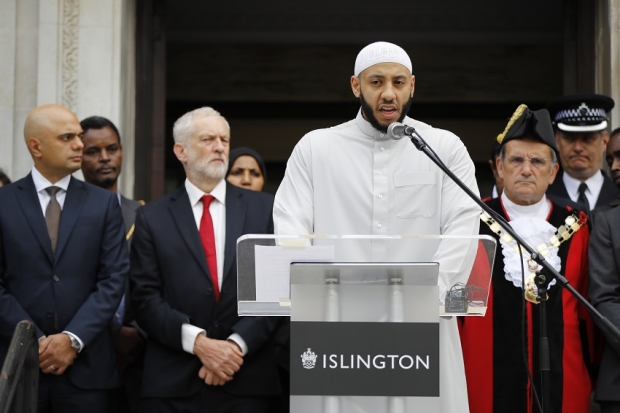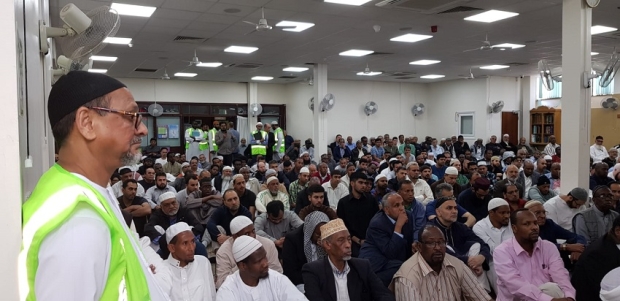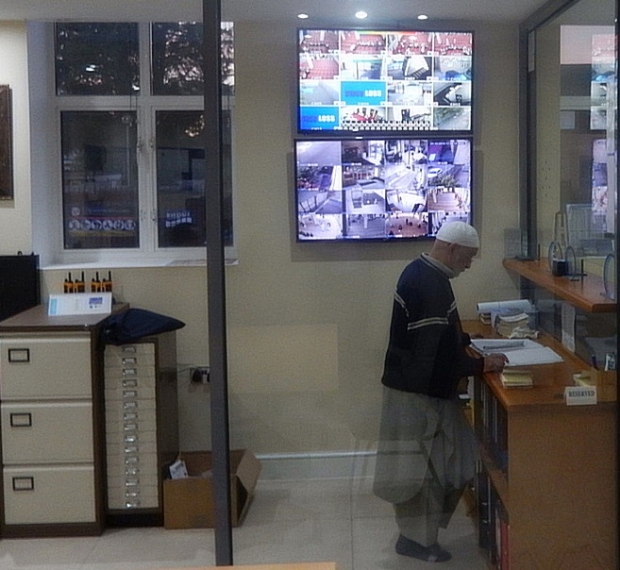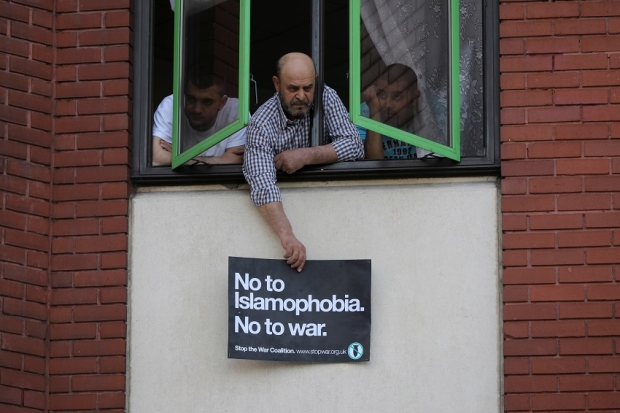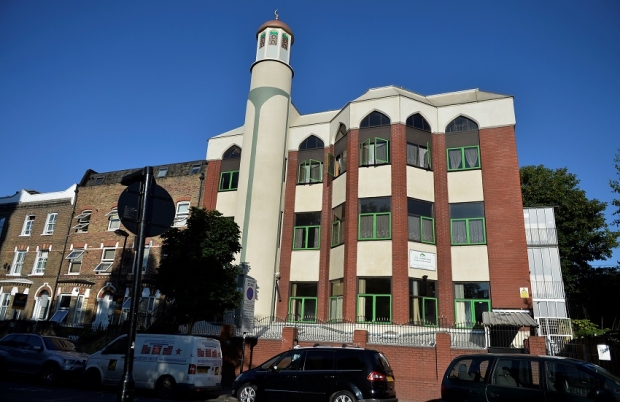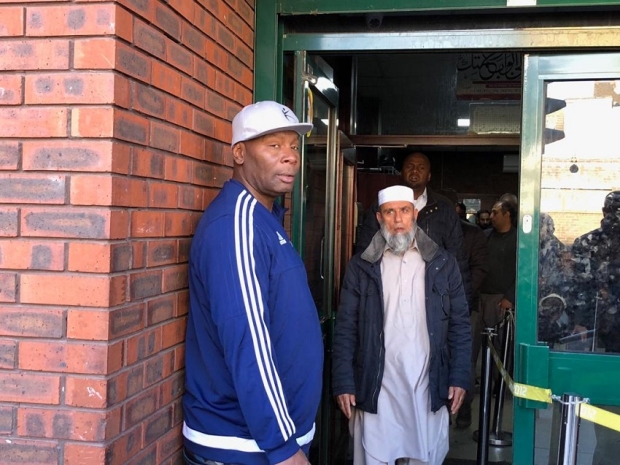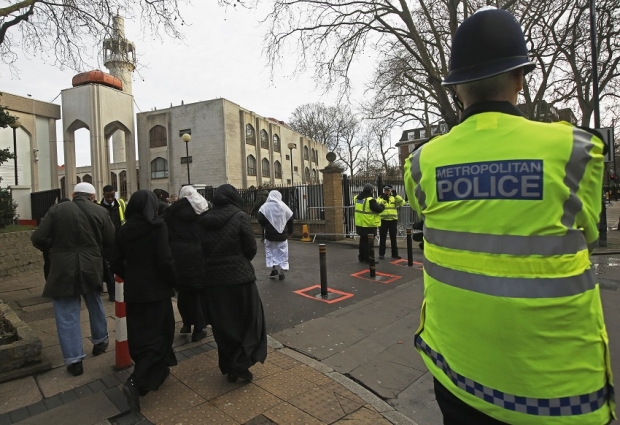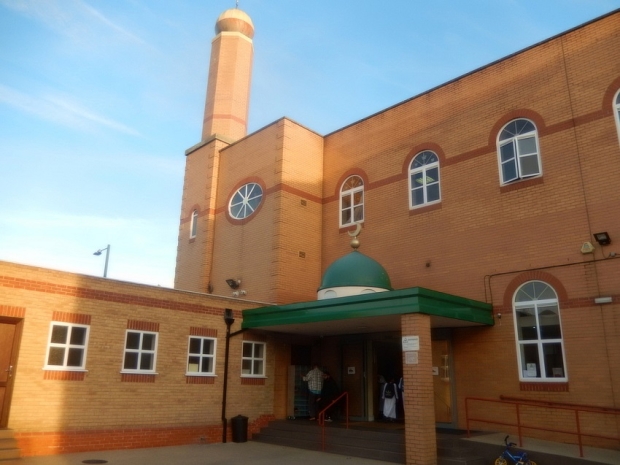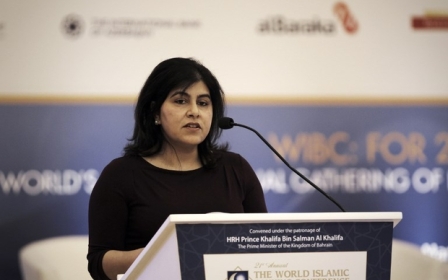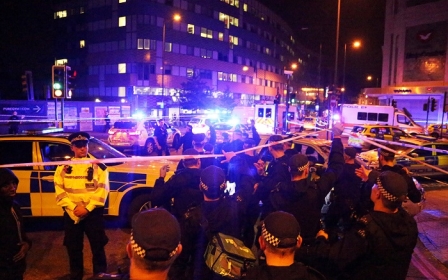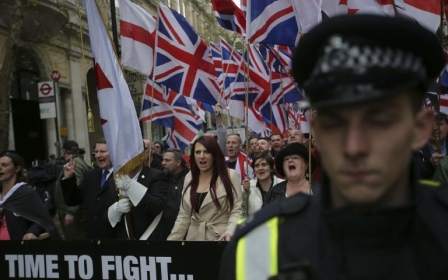Revamping security at London mosques: 'We are completely on our own'
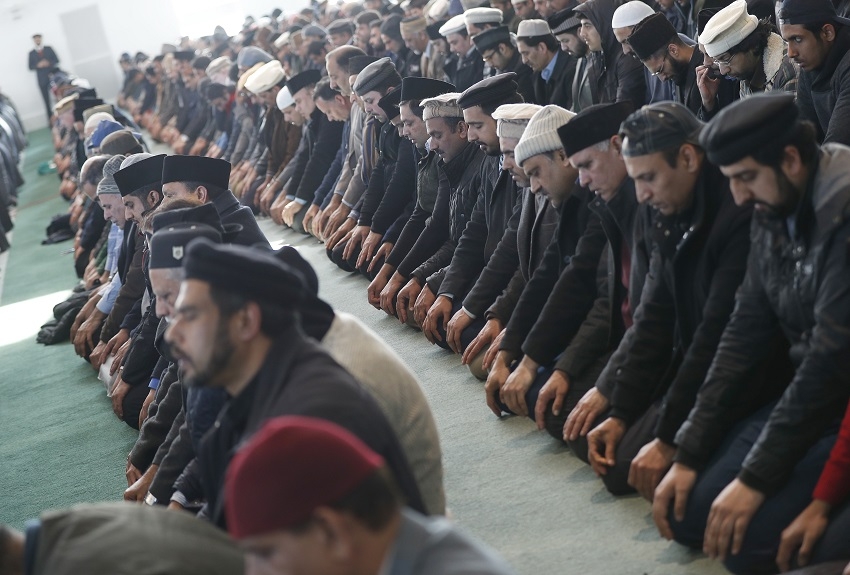
LONDON - Toufik Kacimi was among the first on the scene after Darren Osborne's deadly attack near the Muslim Welfare House (MWH) in the small hours of 19 June last year.
The 47-year-old from Cardiff saw a group of Muslims leaving the building, having just emerged from tarawih, the evening prayer performed during the Islamic holy month of Ramadan.
Osborne drove his truck into the group of worshippers, killing father-of-four Makram Ali. Twelve others were injured, some of them seriously. Local imam Mohammed Mahmoud intervened to protect the attacker by getting between him and the furious crowd as Osborne ranted: "You deserve it ... I did my bit," according to witnesses at the scene.
"People living nearby helped to pull the van from one side and push from the other so we could drag the bodies out," recalls Kacimi, chief executive of the MWH, a combined mosque and education centre. "People were shaking. We thought there might be more Osbornes."
Kacimi has received death threats and hate mail. He says that worshippers have often been attacked and abused on the surrounding streets.
People were shaking. We thought there might be more Osbornes
- Toufik Kacimi, chief executive of MWH
Muslim women have been the most common targets, Kacimi adds, recounting cases of congregants having their hijabs ripped off and being spat upon.
Such experiences are far from unique. New statistics released by the government showed that hate crimes have risen 40 percent in the last year, with the majority of religiously motivated attacks targeting Muslims. Hate crimes targeting mosques more than doubled between 2016 and 2017.
Watchdog Tell MAMA (Measuring Anti-Muslim Attacks) documented a record 1,201 Islamophobic incidents in its latest annual report, including a sharp rise in street attacks and vandalism of Muslim institutions.
The spate of terror attacks in 2017, a surge of nationalism around the Brexit vote, the rise of far-right activist Tommy Robinson's proudly anti-Muslim movement, and constant media vilification have all contributed to an increasingly hostile environment for British Muslims. In this climate, mosques are being forced to take defensive measures.
'We have to be suspicious'
For Kacimi and his congregation, the threat could no longer be downplayed after Osborne's attack. The MWH underwent a comprehensive security overhaul.
Thirty additional CCTV cameras, bringing the total to 36, have been installed and are monitored 24 hours a day by three professional security officers. One office by the main gate has been converted into a surveillance hub, where security staff scan video feeds for warning signs, in position to take rapid action if necessary.
Emergency evacuation procedures have been written up and pinned on a wall outside. The security officers conduct regular sweeps of the premises for suspicious people and packages, and congregants are warned that unaccounted-for bags will be destroyed.
This is God's house, and we are not entitled to kick people out
- Toufik Kacimi, chief executive of MWH
The changes are psychological as well as physical. Kacimi is proud that his community is welcoming and open. "This is God's house, and we are not entitled to kick people out," he says, but circumstances have forced him to compromise those values. "In general we are suspicious now," he says.
"If someone is moving differently or acting a certain way we will monitor him. Sometimes, before, mentally ill people would come inside, and we could ignore them, but now we have to consider this person could be a threat - they could have a bomb or a knife."
Dubious visitors are typically ejected now.
The chief executive says that visitor numbers have not dropped at the centre, with crowds of around 3,000 attending Friday prayers. But new security measures have not erased the fear many feel in the wake of Osborne's attack. Some congregants avoid travelling alone to and from the mosque now, and many children remain traumatised.
Preparing for the worst
The MWH is one of a growing number of mosques that work with Faith Associates, a group that specialises in the management and governance of Muslim institutions, and now, increasingly, security.
In 2017, Faith Associates launched the Mosque Security initiative to help equip management teams with the tools to keep their congregations safe.
Osborne was just the first. Thousands more are coming
- hate mail
Faith Associates has distributed guidebooks on security containing detailed advice from appointing security staff to installing surveillance systems, building connections with emergency services, and crisis management. The group's security consultants also conduct regular advisory sessions with mosque management teams, working with more than 100 institutions.
Recognition of the importance of security has been accompanied by a willingness to invest. "HD cameras might be 40 percent more expensive," says Warraich. "But you might get a conviction if you record the face of a guy throwing a molotov cocktail through your gates."
Building bridges
Another key plank of the Mosque Security programme is encouraging openness with the local authorities and community.
The group has organised security training sessions with representatives from London's Metropolitan Police and the Community Security Trust (CST), a charity that monitors antisemitism and provides security advice to British Jews, who have long-faced similar threats from the far-right. The CST was keen to share the lessons of their experience.
Warraich highlights the CST's "smooth operating procedure" in terms of recording and reporting incidents. But improving reporting is complicated by the challenge of building trust towards police as this has been eroded by the government's controversial counter-extremist programmes such as Prevent - widely criticised for intrusive surveillance of Muslims.
Mosque managers cite fear of engagement with police as a contributing factor to under-reporting of hate crimes, a concern that is borne out by academic research.
"Under Prevent, the policing of Muslim communities has tended to construct Muslim communities as 'suspect populations'," found one report from the Centre for Fascist, Anti-Fascist, and Post-Fascist Studies at Teesside University. "This has reinforced the impression that Muslims are viewed by the authorities as potential terrorists or terrorist sympathisers leading to their reluctance to report anti-Muslim hate incidents to the police."
"It's a two-way process," says Warraich. "Police need to be open about where information will be stored and what will be done if an incident is reported. The community is holding police to account ... and the police are responding to concerns."
Part of the community
Warraich also wants mosques to build links with the wider community as a proactive measure to defang the hostility that fuels hate crimes. "We tell people that run [mosques] to open them up, to be transparent and let people in who may not be of your faith," he says. "That changes perceptions in the surrounding community."
We run the organisation like we are part of one big community, not just a pocket trying to defend ourselves
-Tahir Awan, trustee at Hayes Muslim Centre
The Hayes Muslim Centre, which hosted a Mosque Security session in May, puts the open-door policy into practice. At Friday prayers, the busiest time of the week, outreach workers from the National Health Service (NHS) are inside the building addressing congregants on the importance of regular check-ups. Relaxed volunteers in high-vis jackets direct the milling crowds into the main prayer hall.
But the management is convinced that openness and connections are as important to safeguarding the community as surveillance. Trustee Tahir Awan says a healthy relationship with police has been forged one tea at a time. Beat officers are regular guests at the centre, and a hotline has been established with the borough commander.
The centre is also firmly embedded in community life, from hosting public jumble sales to participating in interfaith activities. "We run the organisation like we are part of one big community, not just a pocket trying to defend ourselves."
Dangerous isolation
The advent of Mosque Security and the increasing focus on security within mosques is in part a reflection that many management teams feel let down by the authorities.
Police need to be open about where information will be stored and what will be done if an incident is reported. The community is holding police to account ... and the police are responding to concerns
- Shaukat Warraich, Chief Executive Faith Associates
The threat is very real in Barking, a borough that once returned 12 councillors from the far-right British National Party (BNP) and was targeted for recruitment by Anjem Choudary's banned extremist al-Muhajiroun group.
Al-Madina is attacked from both sides, says Siddique, who has seen petrol bombs and pig's heads crash through the windows of the mosque. There have been physical fights with Choudary's disciples when police would not move them on. Nails have been scattered in the car park to puncture worshippers' tyres.
The management has done what they can to build self-reliance. Siddique has installed state-of-the-art surveillance and has trained volunteers to stand guard each Friday. Suspicious characters are monitored and questioned, which usually falls to Siddique. "I was a police officer for 30 years," he says. "I'm not scared of challenging people."
Welcoming engagement
Few congregants are willing to report hate crimes to police, says the former officer, due to lack of trust or contact. Where possible, Siddique acts as an interface, pressing the community's claims on his former employers. His frustration is that the perceived negligence of police leaves Muslims vulnerable to hate crimes, but also creates space for extremists such as Choudary’s group to thrive.
"The expectation is that neighbourhood officers have relationships with their local faith community," says Stringer, stressing the need for "regular contact". He adds that police should be able to advise on site-specific security measures.
Additional support is available through a new Home Office fund to secure places of worship. Warraich says that several mosques he works with have successfully bid for grants.
Greater engagement from authorities is welcome, and initiatives such as Mosque Security can offer useful guidance. The tragedy is that higher walls, and advanced surveillance have come to represent progress for the many Muslim communities that feel isolated and vulnerable in today's Britain.
With a resurgent far-right and the unpredictable effects of Brexit still to come, the fear is that the threats could further escalate.
New MEE newsletter: Jerusalem Dispatch
Sign up to get the latest insights and analysis on Israel-Palestine, alongside Turkey Unpacked and other MEE newsletters
Middle East Eye delivers independent and unrivalled coverage and analysis of the Middle East, North Africa and beyond. To learn more about republishing this content and the associated fees, please fill out this form. More about MEE can be found here.


